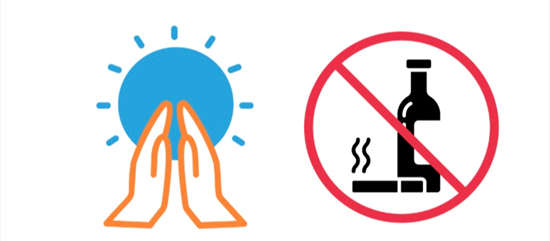Special Midweek Newsletter

What Role Does Faith in God Play in Reducing Drug Addiction?
At a recent House Committee on Oversight and Accountability hearing examining the Office of National Drug Control Policy’s effort to combat the overdose crisis, I made the comment that the Biden regime’s proposed drug control plan to deal with the fentanyl crisis lack any moral imperative. I noted the absence of any reference to faith-based healing.
As reported by the left-wing main street media: “Gosar argued that "Biden's National Drug Control Strategy is 150 pages. The words ‘God' and ‘faith' are not mentioned one time. People need a purpose to be happy." He also insinuated that there might be a link between increased government assistance, a lack of faith in God, and a rise in drug overdoses.”
A democrat representative took my comments to task as the headline shrieked: “Jamie Raskin Slams GOP Lawmaker's 'Preposterous' Suggestion To Add 'God And Faith' In National Drug Control Strategy.”
There was nothing “preposterous” about my suggestion. In fact, the most successful drug treatment programs use faith as their guidepost. Most people are well aware of Alcoholics Anonymous and its 12-step program. It is famous because it is known as the most successful program that has helped millions beat their addiction to alcohol. It’s secret to success is not so secret: it has every addict admit they are powerless without God in their life. Let’s look at the 12 steps:
- We admitted we were powerless over alcohol — that our lives had become unmanageable.
- Came to believe that a Power greater than ourselves could restore us to sanity.
- Made a decision to turn our will and our lives over to the care of God as we understood Him.
- Made a searching and fearless moral inventory of ourselves.
- Admitted to God, to ourselves, and to another human being the exact nature of our wrongs.
- Were entirely ready to have God remove all these defects of character.
- Humbly asked Him to remove our shortcomings.
- Made a list of all persons we had harmed, and became willing to make amends to them all.
- Made direct amends to such people wherever possible, except when to do so would injure them or others.
- Continued to take personal inventory and when we were wrong promptly admitted it.
- Sought through prayer and meditation to improve our conscious contact with God as we understood Him, praying only for knowledge of His will for us and the power to carry that out.
- Having had a spiritual awakening as the result of these Steps, we tried to carry this message to alcoholics, and to practice these principles in all our affairs.
In looking at this foundational ethos, 80% invokes faith and God.
Again, I ask you, who is being “preposterous?” Me, and my suggestion that an effective addiction program uses faith at its core, or my colleague who mocks the most successful addiction program in our nation’s history?
There is a spiritual reawakening in America. Not everyone in Congress recognizes it, but many do. Please read this very well-written article by Pastor Andrew Isker.